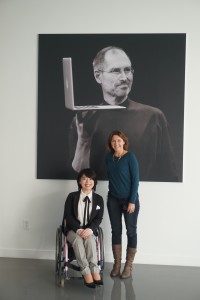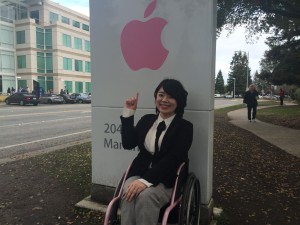This article is also available in: 日本語
< Part 1 is here >

From my conversation with Sue, it seems that diversity is looked at as a positive thing,
and companies see this as helping them to be creative and think about problems from many perspectives.
In Japan, the relationship between companies and people with disabilities are not equal.
People with disabilities have very little control on their career path.
Companies hire employees with disabilities to meet their quota, requested by the Employment Law in Japan, and often assign minimal job responsibilities to them.
Because they have little work to do, they cannot receive a good rating at their annual performance review.
As a result, they are often not promoted, and are stuck in one position for long time periods of time.
Disabled employees should not be considered as a means to avoid fines or to build positive public corporate images.
Companies should evaluate a job applicant based on whether he or she can do the job well and then make the decision based on his or her ability, not disability.

At lastly, some things I learned from our conversation:
Helping people to live independently is a priority in the US.
Technology and changing perceptions are improving people’s lives and reducing the dependency people with disabilities have on others.
This may help to empower people to lead fulfilling lives despite enormous challenges.

Thanks to the technology, we can do things more easily and conveniently.
Technology keeps changing our lives rapidly and empowers people with disabilities to extend and enhance their abilities.
But if employers keep their shutters down and don’t provide all employees an equal opportunity to pursue their career paths, the quality of lives for people with disabilities will remain unchanged.
That would also mean missed opportunities to utilize the abilities of those talented people and the great impact they could have on the companies.
Clearly, not only technology, but also our mindset, needs to be upgraded.
